Dry Lips, Dry Nose, Dry Skin, Dry Eyes, Acne Worsening, Joint/Back/Muscle Pain, Chronic Fatigue, Headaches, Hair Loss, Photosensitivity, Vision Changes, Chest Pain

The Essential Info
This article describes the top 12 most common side effects of isotretinoin, often referred to by its brand name, Accutane®. However, it is important to note that isotretinoin can also cause a wide variety of other side effects that, while not as common as those listed here, are often more severe. Among these, a few of the most severe side effects may include depression, suicidal thoughts, inflammatory bowel disease, and most concerningly, a very high likelihood of birth defects or miscarriage if used during pregnancy.
My Own Experience: I took isotretinoin in college. It temporarily cleared me up completely, which felt amazing, but my acne came back as soon as I stopped taking it, albeit to a lesser degree. Like everyone else who takes it, I experienced extremely dry, cracked, and bleeding lips. Over 20 years later I still have to use lip balm several times a day. I also suffered with a dry, often bloody nose, dry skin, and eyes that were so sensitive and dry that I couldn’t watch movies. For me, my most memorable side effect was painful joints. My joints recovered after my course of the drug ended, but they never went back to how they felt pre-isotretinoin, and I am left wondering if that is coincidence or a permanent side effect. My message in relaying my own side effects is to give a real-life example that isotretinoin powerfully affects the body, and side effects can be severe and potentially permanent. While isotretinoin can be a godsend to some people with severe, widespread, and deeply scarring acne, it should be entered into with the utmost caution, and only after all options are exhausted.

The Science
- #1. Dry Lips
- #2. Dry Nose
- #3. Dry Skin
- #4. Dry Eyes
- #5. Temporary Worsening of Acne
- #6. Joint, Back, and Muscle Pain
- #7. Chronic Fatigue
- #8. Headaches
- #9. Hair Loss
- #10. Sensitivity to Sunlight
- #11. Changes in Vision
- #12. Chest Pain
- The Bottom Line
Scientists and doctors consider isotretinoin (brand name Accutane®) to be the most effective treatment for very severe acne.1-13 Isotretinoin is an oral medication that is typically prescribed in a 15-20 week course.
Even though scientists still do not fully understand how isotretinoin works, we do know that it dramatically reduces skin oil (sebum) production, probably by triggering the death of cells that produce skin oil. Too much skin oil is one of the key causes of acne, so killing off some of the cells that produce skin oil can reduce breakouts.14
Although isotretinoin is effective, it can cause a variety of side effects that range from mild to severe.1-13 These side effects occur because isotretinoin affects not only the target cells, which are the cells that produce skin oil, but all kinds of cells throughout the body.14 While most side effects are temporary and resolve once treatment ends, a significant number of patients report permanent side effects.
Most patients begin to experience side effects approximately six weeks after beginning treatment with isotretinoin. Some symptoms, such as severely dry lips, can be painful but are considered relatively mild; others, such as changes in vision, can be severe and may require that the patient discontinue treatment if they occur.1
Whenever speaking about isotretinoin, it should also be stated that it is the most teratogenic (causes birth defects) medication on the market today, and causes devastating and life-threatening harm to the fetus.
In this article, we will discuss the 12 most common side effects of isotretinoin.
#1 – Dry Lips
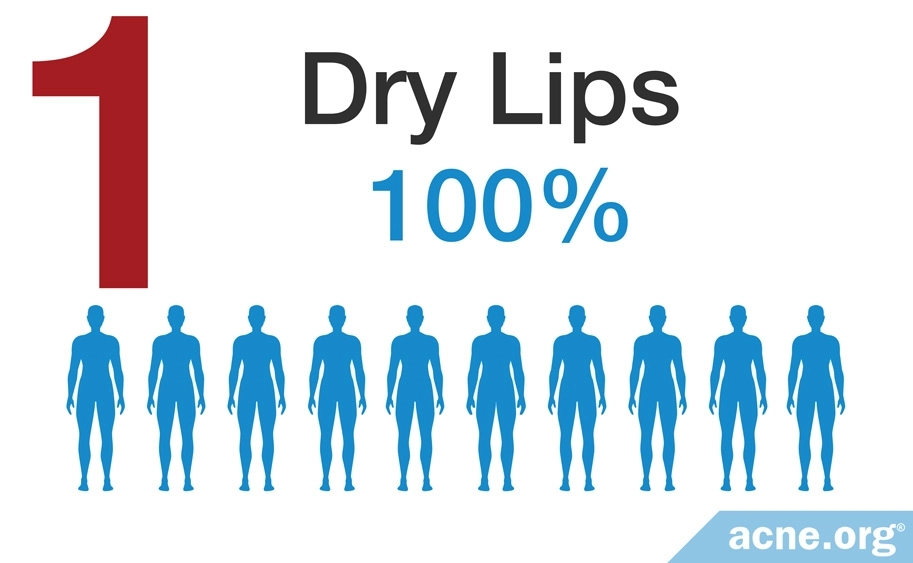
The most common side effect of isotretinoin is dryness of the lips, sometimes severe enough to cause cracking and bleeding.
Almost everyone who takes isotretinoin experiences dry lips. In fact, doctors use this side effect as an indication that isotretinoin therapy is working and consider the absence of dry lips to indicate treatment failure.2,3
While dry lips are expected during isotretinoin treatment, they can usually be relieved by applying lip balm. Dry lips may resolve when treatment ends, but this symptom may remain permanently, necessitating lifelong use of lip balm.
#2 – Dry Nose
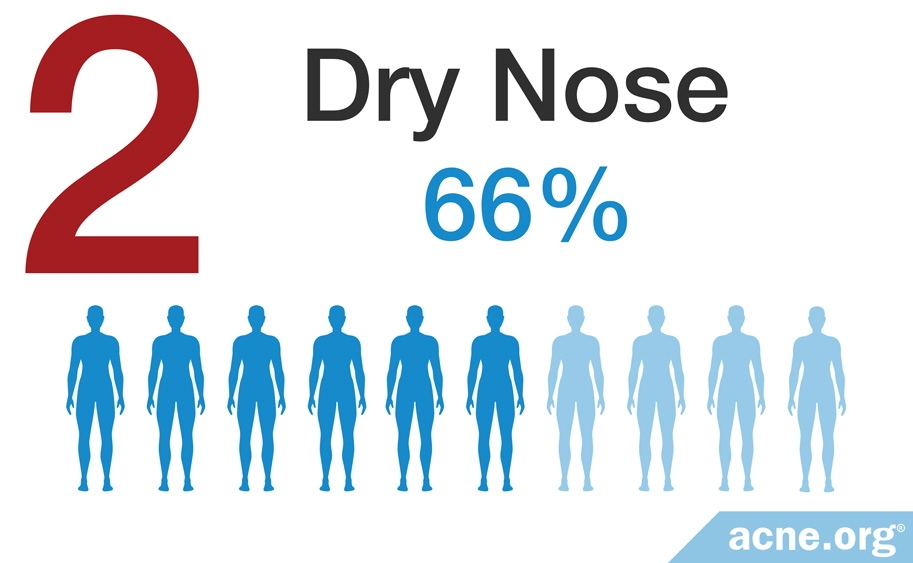
Dry nose occurs in approximately two-thirds of people who take isotretinoin, and almost 40% of patients report dryness that is severe enough to cause nosebleeds.2,4
Use of nasal lubricants may help with this symptom. This is most often a temporary symptom that resolves when treatment ends.
#3 – Dry Skin
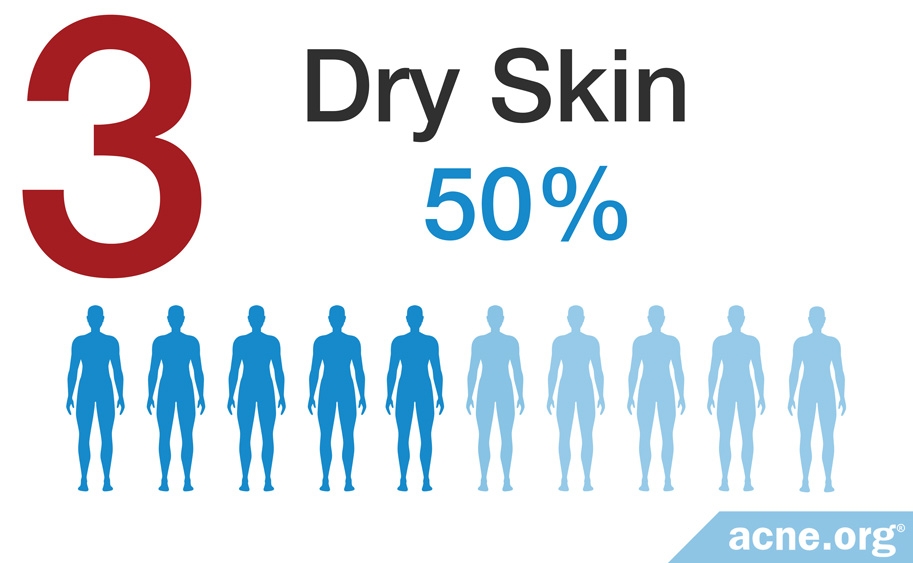
Dry skin, often accompanied by severe itching and rashes, is the third most common side effect of isotretinoin. This side effect affects almost half of those treated with isotretinoin.
Dry skin and associated itching are usually manageable by applying moisturizers to the skin.
People with a history of allergies, eczema, hay fever, or allergic asthma are more likely to develop severely dry and itchy skin.5
The development of dry skin during isotretinoin treatment may be dose dependent. In other words, people taking a higher dose of isotretinoin are more likely to experience dry skin, as one recent study found.3
Expand to read quote from study
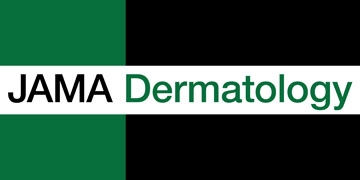
According to a 2013 study in the Journal of the American Medical Association Dermatology, “Retinoid dermatitis [skin irritation from isotretinoin] was significantly more common in patients receiving higher-dose treatment; 53.8% of patients in the high-dose group developed rash compared with 31.6% of those in the lower-dose group.”3
Most of the time, dry and itchy skin is a temporary side effect of isotretinoin. However, 10-20% of patients report still having dry skin a year after treatment. The duration of dryness and itchiness also appears to be dose dependent.3
Expand to read quote from study

A 2013 study in the Journal of the American Medical Association Dermatology found that those taking a high dose of isotretinoin were more likely to still have dry and itchy skin a year after treatment.3
#4 – Dry Eyes
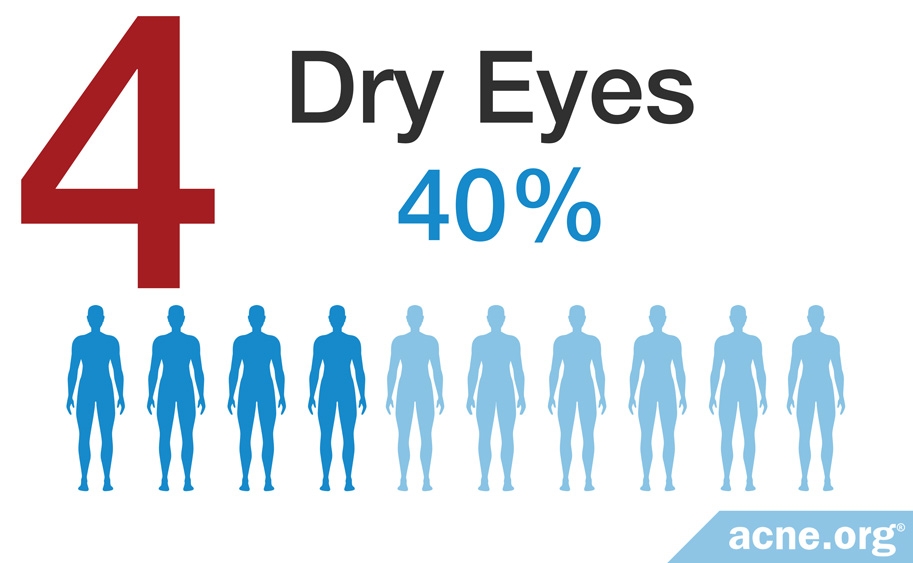
Dry eyes affect approximately 40% of people taking isotretinoin. In most people, this is a temporary side effect that resolves after the first few months of treatment. However, approximately 25% of patients experience dry eyes throughout treatment.
Some patients, especially those who wear contact lenses, also experience conjunctivitis (pink eye), which is an inflammation of the lining of the eyes.4
Eye drops can help with the symptoms of dry eyes.
More serious problems with vision are less common but still in the top 12 (See #11).
A recent study found that only about half of those who receive an isotretinoin prescription leave the doctor’s office with enough information about possible eye-related side effects like dry eyes and how to manage them. This is particularly important in the case of people who wear contact lenses or have recently undergone corrective eye surgery.15 Be sure to ask your dermatologist about eye-related side effects and what you should do in case they occur.
#5 – Temporary Worsening of Acne
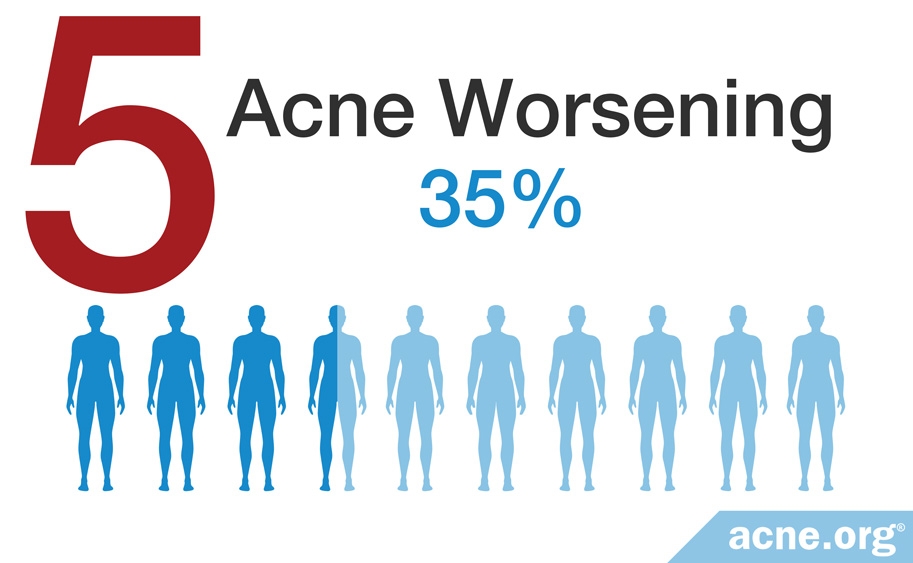
About 35% of patients report an acne flare within a month of starting treatment. However, such flares are usually temporary and by the fourth month of treatment, only 6% of patients are still experiencing flares.4
#6 – Joint, Back, and Muscle Pain
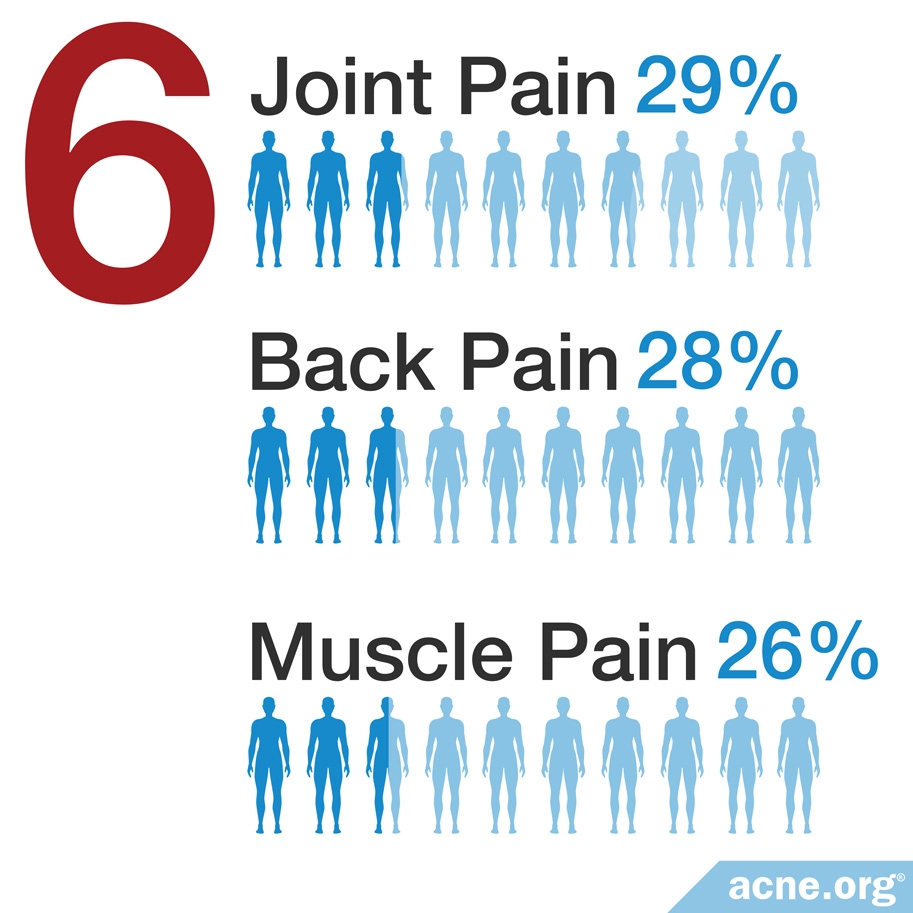
While the majority of the common side effects of isotretinoin involve the skin and mucous membranes, a significant number of patients experience musculoskeletal side effects:
- 28% of patients experience back pain
- 29% of patients experience frequent joint aches
- 26% of patients experience muscle aches3,4
When it comes to back pain, most people who experience back pain due to isotretinoin describe it as lower back pain. However, some patients experience so-called inflammatory back pain, which radiates from the back to one of the legs and may be accompanied by fatigue or abdominal pain. These different types of back pain require different treatments.16
Most of the time, musculoskeletal symptoms disappear after the first month of treatment. However, some patients continue to have pain throughout treatment, and 5% of patients on low-dose treatment and 8-9% of those on high-dose treatment report ongoing pain one full year after treatment.3,4 There are no studies following people for longer than one year, so whether this pain can last for a lifetime in some people is a possibility and remains unstudied.
#7 – Chronic Fatigue
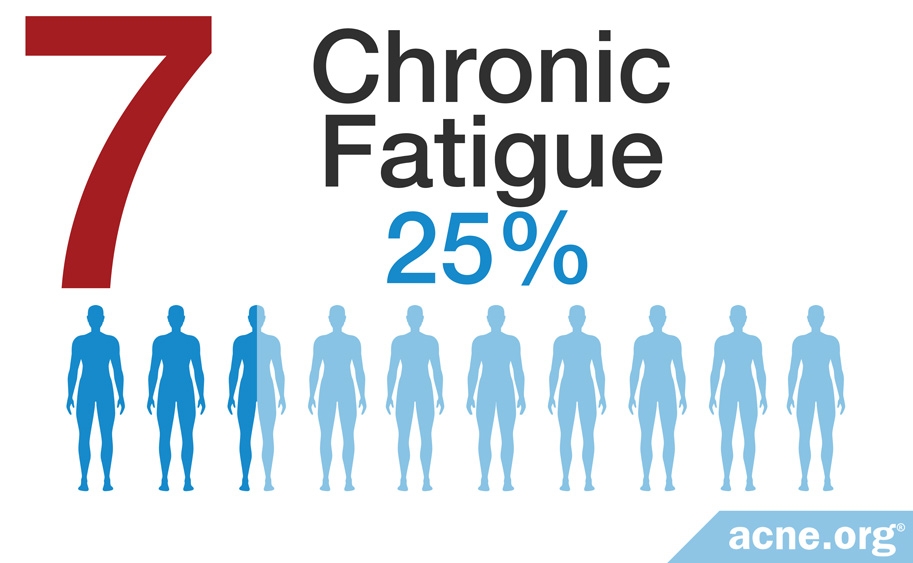
Chronic fatigue is also a common side effect of isotretinoin, and can sometimes be severe enough to require that the patient discontinue treatment.
One study found that as many as one quarter of patients experience fatigue during the first month of treatment, and many continue to suffer from this side effect as the course of treatment continues.4
Expand to read details of study
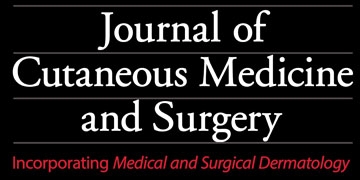
A 2000 study in the Journal of Cutaneous Medicine and Surgery found that 25% of patients reported fatigue during the first month of treatment; by the fourth month of treatment, the incidence of fatigue had decreased somewhat, with 18% of patients still reporting fatigue.4
As with other side effects, fatigue appears to be dose-dependent. Only a small minority of patients who take a low dose of isotretinoin experience fatigue.6
Expand to read details of study

A 2010 study in the Australasian Journal of Dermatology found that only 5% of patients on a low dose of isotretinoin (0.25 mg/kg/day) experienced fatigue. This same study found that 0.7% of patients discontinued treatment because of fatigue.6
#8 – Headaches
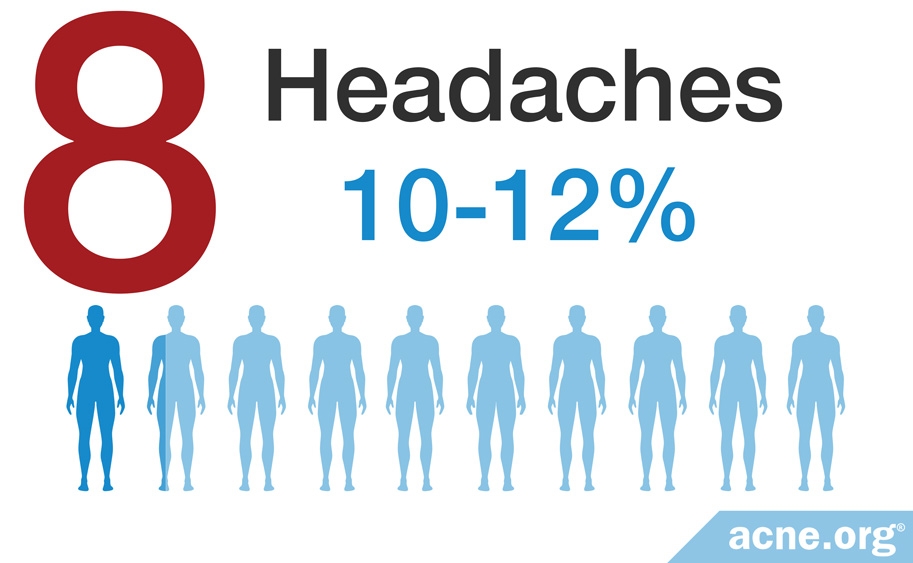
10-12% of patients report headaches during isotretinoin treatment. Headaches do not appear to be dose dependent, as patients on lower doses have the same risk of developing headaches as those on higher doses. While headaches are usually temporary, they can persist on an ongoing basis even a year after treatment.3,4,8
Most of the time, headaches caused by isotretinoin are mild and not serious. Sometimes, however, headaches are due to increased pressure in the skull, which may lead to more severe problems such as vision loss, double vision, episodes of blindness, ringing in the ears, nausea, and vomiting. Because of this possibility, anyone who experiences headaches during isotretinoin treatment should seek medical attention.8
#9 – Hair Loss
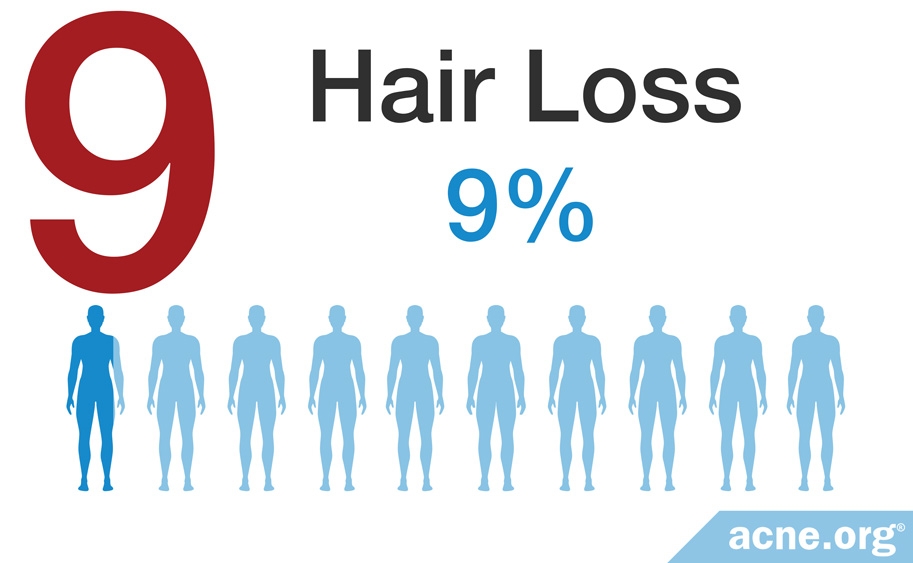
Hair loss is also a relatively common side effect of isotretinoin, affecting 9% of patients.4
Hair loss does not appear to be dose dependent, since taking a lower dose of isotretinoin does not reduce the likelihood of this side effect. However, hair loss is usually relatively mild and temporary, and resolves after treatment ends.3 According to one study, patients may initially complain of hair loss after beginning isotretinoin treatment, but this side effect usually disappears quickly.4
One study also reported an unusual side effect in which a patient’s hair texture changed from straight to curly after taking isotretinoin.7
Expand to read details of studies

According to a 2000 study in the Journal of Cutaneous Medicine and Surgery, “Increased hair shedding was mostly reported at the first visit, but none of these patients complained of an ongoing problem at the second visit…All patients who complained of hair loss were asked to [quantify] the loss. In none was the number of hairs shed greater than 100 hairs per day.”4

Interestingly, in a 1988 study in the Journal of the American Medical Association Dermatology, one patient with straight hair reported developing curly hair after treatment. This suggests that isotretinoin may have the ability not only to cause hair loss but also to change hair texture.7
#10 – Sensitivity to Sunlight
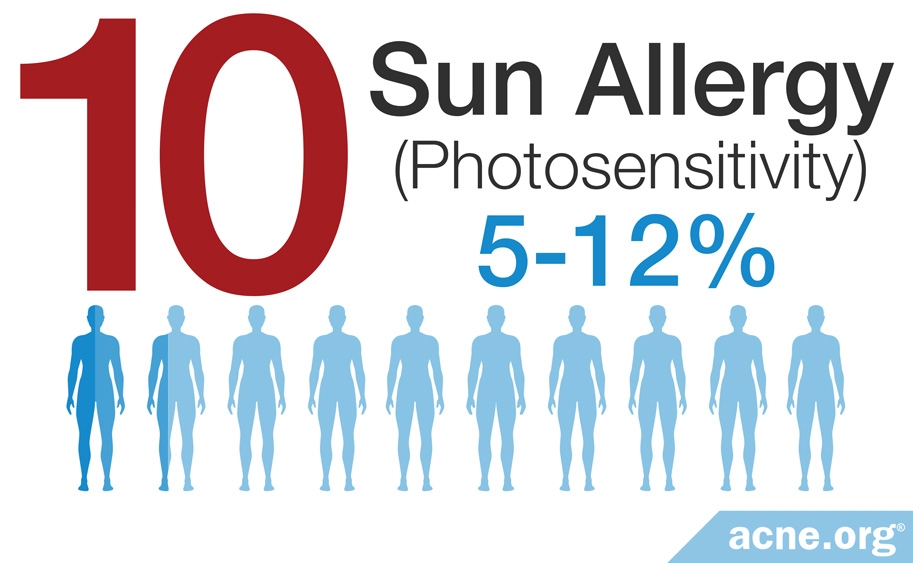
Sensitivity to sunlight is another relatively common side effect of isotretinoin, with 5-12% of patients reporting sun sensitivity and an increase in sunburns.3,4,8
Sun sensitivity is dose dependent. Patients on high-dose treatment (more than 0.5 mg/kg/day) are more likely to develop this side effect than those on low-dose treatment.8 However, because this is a possible side effect regardless of dose, it is important to take preventive measures such as regularly wearing sunscreen, sunglasses, and wide-brimmed hats while taking isotretinoin in order to prevent severe sunburn.
#11 – Changes in Vision
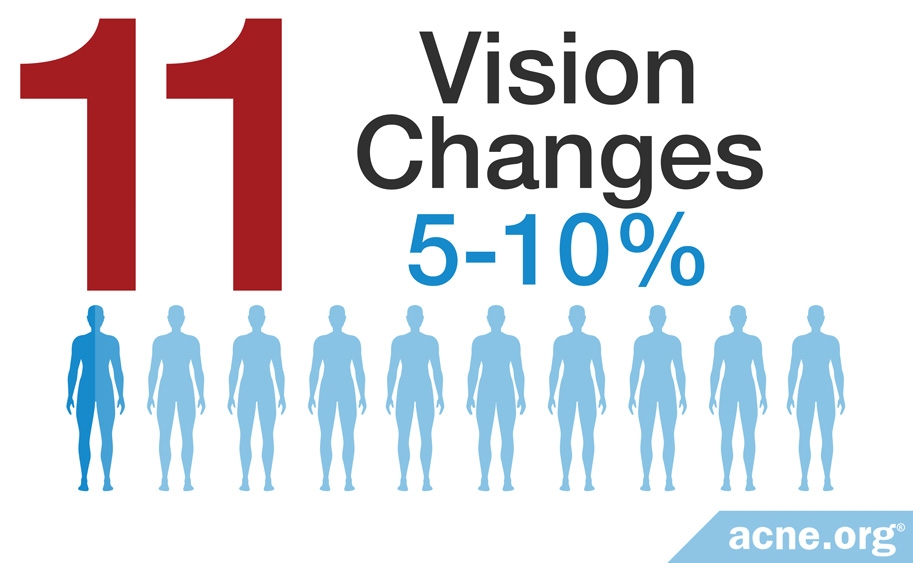
Isotretinoin causes vision changes in 5-10% of patients.3,4,6 The most common vision change reported is poor night vision.9,10 Vision abnormalities following isotretinoin are so pervasive that the United States Air Force has barred all people who have previously taken isotretinoin from becoming fighter pilots.
One study reported that vision changes are more likely in people who take medium or high doses of isotretinoin, in other words, at least 0.5 mg/kg/day.8
Expand to read details of study
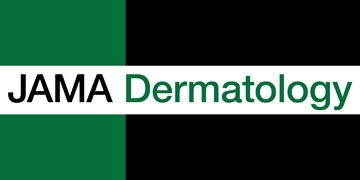
According to a 1984 study in the Journal of the American Medical Association Dermatology, vision problems are more common in people taking medium (0.5 mg/kg/day) or high (up to 1 mg/kg/day) doses of isotretinoin than in people taking lower doses. This study did not specify whether vision changes were temporary or permanent.8
Vision changes may be mild or severe and may require discontinuing treatment. Anyone experiencing vision changes of any kind while taking isotretinoin should seek medical attention.
#12 – Chest Pain
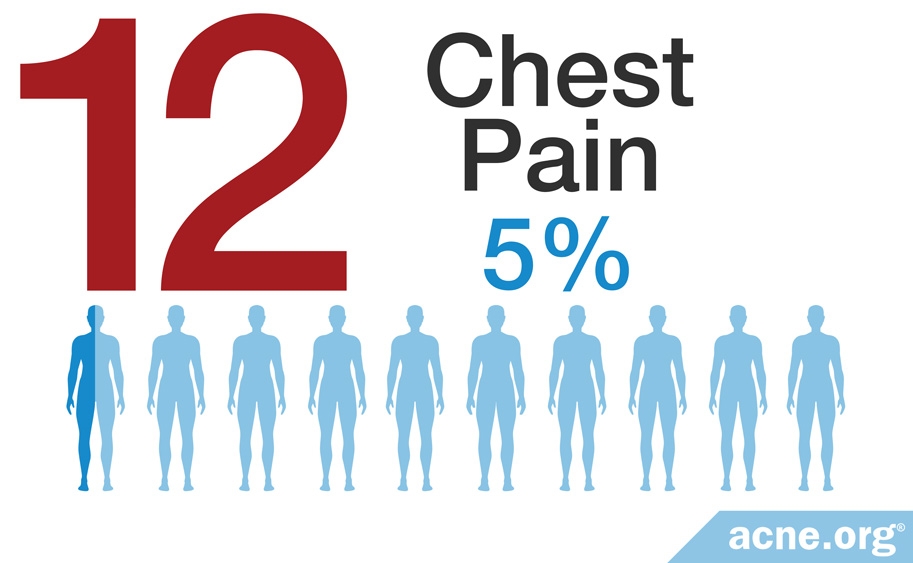
Two studies have reported that a small minority of patients taking isotretinoin experienced chest pain.4,8
Expand to read details of studies

Isotretinoin can also cause chest pain. In two studies, a 1988 study in the Journal of the American Medical Association Dermatology and a 2000 study in the Journal of Cutaneous Medicine and Surgery, approximately 5% of patients reported experiencing chest pain during treatment.4,8
While it is unclear how isotretinoin causes chest pain, this is a serious side effect and anyone experiencing chest pain while taking isotretinoin should seek medical attention right away and stop taking the medication.11
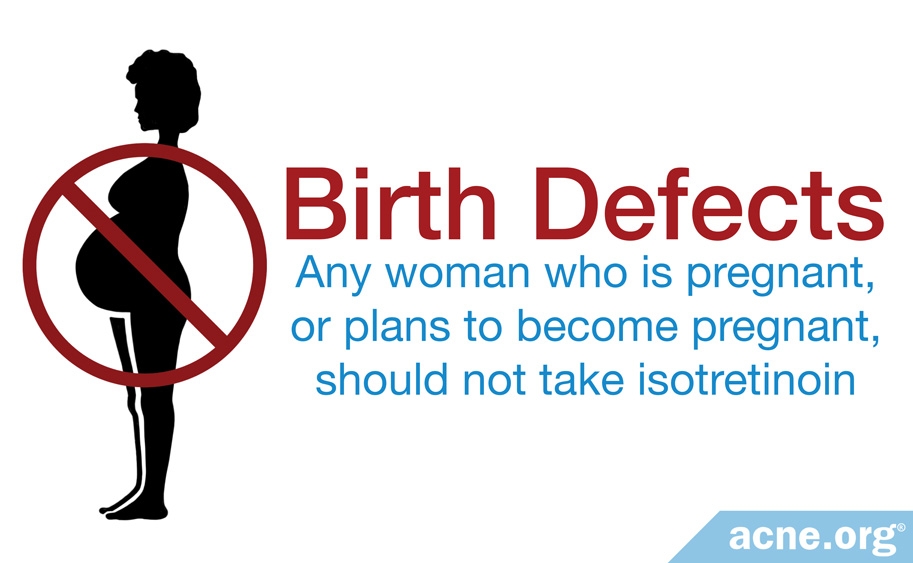
While thankfully not in the top 10, birth defects are expected if a pregnant woman takes isotretinoin. Isotretinoin directly causes severe birth defects, including death to the fetus. It is absolutely crucial that any woman who is pregnant, or plans to become pregnant, not take isotretinoin.
The Bottom Line
To sum up, isotretinoin comes with side effects, but it is also the drug that has changed the lives of many patients with severe acne. If you suffer from severe, widespread, and deeply scarring acne, isotretinoin may be something to consider.
Your doctor may be able to relieve or treat many of the most common side effects.17 However, some of the side effects of isotretinoin are serious and can last long after you stop taking the drug, so it is not a treatment to be entered into lightly.
If you are a female considering isotretinoin, remember: Preventing pregnancy while on the drug is critical due to the risk of birth defects.
While some side effects of isotretinoin occur in nearly everyone who takes it, recent research suggests that some people are more prone to certain side effects than others due to genetic differences.14 Therefore, we can hope that future advances will allow doctors to predict how likely a given patient is to suffer from specific side effects of isotretinoin.
References
- Goulden, V., Layton, A. M. & Cunliffe, W. J. Long-term safety of isotretinoin as a treatment for acne vulgaris. Br. J. Dermatol. 131, 360-363 (1994). https://www.ncbi.nlm.nih.gov/pubmed/7918010
- Ellis, C. N. & Krach, K. J. Uses and complications of isotretinoin therapy. J. Am. Acad. Dermatol. 45, S150-157 (2001). https://www.ncbi.nlm.nih.gov/pubmed/11606947
- Blasiak, R. C., Stamey, C. R., Burkhart, C. N., Lugo-Somolinos, A. & Morrell, D. S. High-dose isotretinoin treatment and the rate of retrial, relapse, and adverse effects in patients with acne vulgaris. JAMA Dermatol. 149, 1292-1398 (2013). https://www.ncbi.nlm.nih.gov/pubmed/24173086
- Hull, P. R. & Demkiw-Bartel, C. Isotretinoin use in acne: prospective evaluation of adverse events. J. Cutan. Med. Surg. 4, 66-70 (2000). https://www.ncbi.nlm.nih.gov/pubmed/11179927
- Leyden, J. J. The role of isotretinoin in the treatment of acne: personal observations. J. Am. Acad. Dermatol. 39, S45-49 (1998). https://www.ncbi.nlm.nih.gov/pubmed/9703123
- Rademaker M. Adverse effects of isotretinoin: A retrospective review of 1743 patients started on isotretinoin. Australas. J. Dermatol. 51, 248-253 (2010). https://www.ncbi.nlm.nih.gov/pubmed/21198520
- Strauss, J. S. et al. Isotretinoin therapy for acne: results of a multicenter dose-response study. J. Am. Acad. Dermatol. 10, 490-496 (1984). https://www.ncbi.nlm.nih.gov/pubmed/6233335
- Bigby, M. & Stern, R. S. Adverse reactions to isotretinoin. A report from the Adverse Drug Reaction Reporting System. J. Am. Acad. Dermatol. 18, 543-552 (1988). https://www.ncbi.nlm.nih.gov/pubmed/3280622
- Mollan, S. P. et al. Does use of isotretinoin rule out a career in flying? Br. J. Ophthalmol. 90, 957-959 (2006). https://www.ncbi.nlm.nih.gov/pmc/articles/PMC1857209/
- Weleber, R. G. et al. Abnormal retinal function associated with isotretinoin therapy for acne. Arch. Opthalmol. 104, 831-837 (1986). https://www.ncbi.nlm.nih.gov/pubmed/2940999
- Madan, V., Muston, H. L. & Marsland, A. M. Isotretinoin-induced pleuritic chest pain. Br. J. Dermatol. 156, 385-386 (2007). https://onlinelibrary.wiley.com/doi/abs/10.1111/j.1365-2133.2006.07618.x
- Rashtak, S. et al. Isotretinoin exposure and risk of inflammatory bowel disease. JAMA Dermatol. 150, 1322-1326 (2014). https://www.ncbi.nlm.nih.gov/pubmed/25207875
- Charakida, A., Mouser, P. E. & Chu, A. C. Safety and side effects of the acne drug, oral isotretinoin. Expert Opin. Drug Saf. 3, 119-129 (2004). https://www.ncbi.nlm.nih.gov/pubmed/15006718
- Melnik, B. C. Apoptosis may explain the pharmacological mode of action and adverse effects of isotretinoin, including teratogenicity. Acta Derm. Venereol. 97, 173 – 181 (2017). https://www.ncbi.nlm.nih.gov/pubmed/27671426
- AlMasoudi, R. M., Bahaj, R. K. & Kokandi, A. A. Patients’ awareness of the ocular side effects of isotretinoin therapy: A study from Saudi Arabia. Cureus. 14, e24628 (2022). https://pubmed.ncbi.nlm.nih.gov/35664419/
- Özkoca, D., Caf, N., Alacagöz Yılmaz, N. N., Uzunçakmak, T. K., Özdil, A. & Atsü, A. N. Skeletal side effects of systemic isotretinoin treatment: Do they depend on age, gender, treatment duration, daily dose and isotretinoin-naiveness? Dermatol. Pract. Concept. 13, e2023121 (2023). https://pubmed.ncbi.nlm.nih.gov/37196277/
- Bettoli, V., Guerra-Tapia, A., Herane, M. I. & Piquero-Martín, J. Challenges and solutions in oral isotretinoin in acne: Reflections on 35 years of experience. Clin. Cosmet. Investig. Dermatol. 12, 943 – 951 (2019). https://www.ncbi.nlm.nih.gov/pubmed/32021364
The post The Top 12 Most Common Side Effects of Isotretinoin (Accutane) appeared first on Acne.org.
